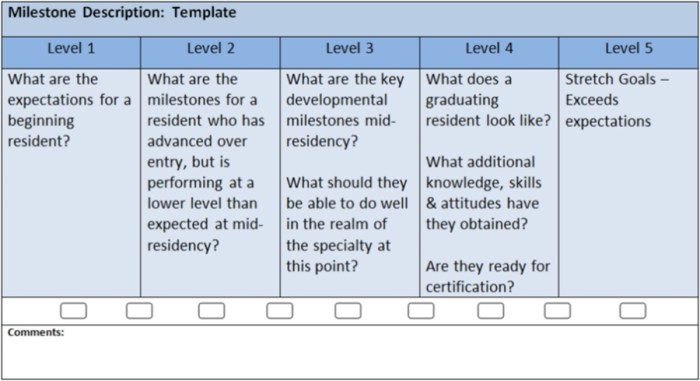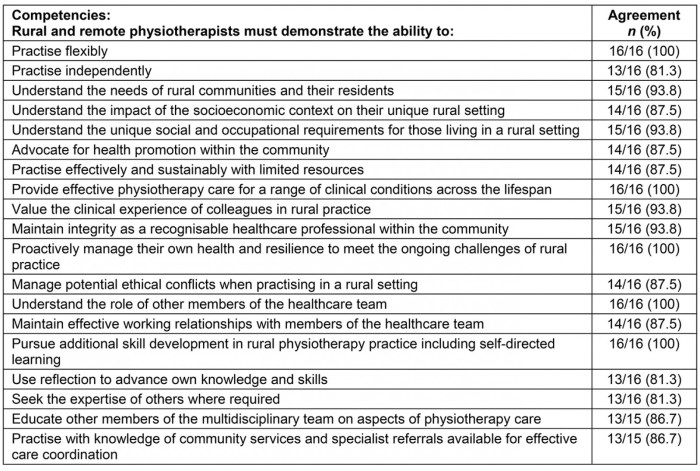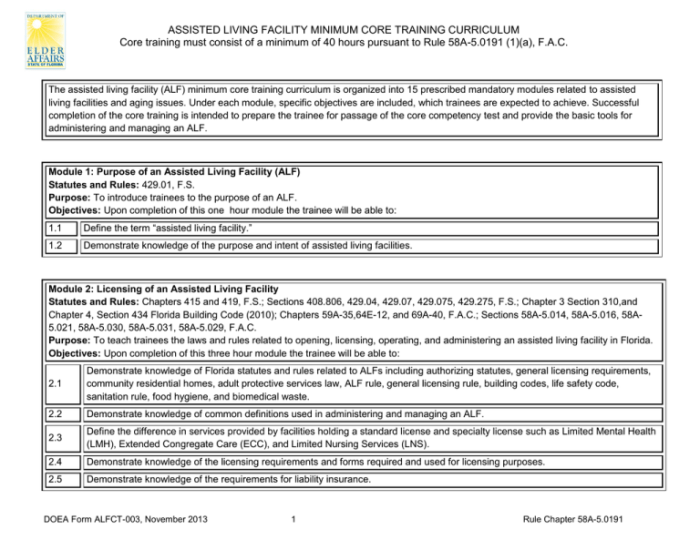The Assisted Living Facility Core Competency Test plays a pivotal role in evaluating the skills and knowledge of assisted living staff, ensuring they possess the essential qualities to provide exceptional resident care. This comprehensive assessment tool measures core competencies such as communication, empathy, and medical assistance, empowering facilities to identify areas for improvement and maintain the highest standards of care.
By assessing and developing core competencies among assisted living staff, facilities can enhance the quality of resident care, improve resident outcomes, and create a positive and supportive living environment.
Core Competencies of Assisted Living Facilities
Assisted living facilities (ALFs) provide housing, personal care, and supportive services to individuals who need assistance with activities of daily living (ADLs) but do not require the level of care provided by a nursing home. Core competencies are the essential skills and knowledge that ALF staff must possess to provide quality care to residents.
Essential Skills and Knowledge
- Communication: Effectively communicate with residents, family members, and other staff members.
- Empathy: Understand and respond to the emotional needs of residents.
- Medical assistance: Provide basic medical care, such as medication administration and wound care.
- Personal care: Assist residents with ADLs, such as bathing, dressing, and eating.
- Safety and security: Ensure the safety and security of residents.
Assessment of Core Competencies: Assisted Living Facility Core Competency Test

ALFs use various methods to assess core competencies in their staff, including:
Assessment Tools
- Observations: Observing staff interactions with residents.
- Interviews: Asking staff questions about their skills and knowledge.
- Performance evaluations: Evaluating staff performance based on specific criteria.
Development of Core Competencies

ALFs can develop core competencies among their staff through:
Training Programs
- In-service training: Providing on-the-job training to staff.
- External training: Sending staff to attend training programs offered by outside organizations.
Workshops
- Hosting workshops to focus on specific core competencies.
- Inviting experts to lead workshops on relevant topics.
Mentoring Opportunities
- Pairing new staff with experienced staff to provide guidance and support.
- Creating a mentorship program to foster professional development.
Maintenance of Core Competencies

ALFs must maintain core competencies among their staff through:
Ongoing Training, Assisted living facility core competency test
- Providing regular training to keep staff up-to-date on best practices.
- Addressing identified areas of improvement through targeted training.
Professional Development
- Encouraging staff to pursue continuing education and professional development opportunities.
- Supporting staff in attending conferences and workshops.
Impact of Core Competencies on Resident Care

Core competencies have a positive impact on resident care by:
Improved Resident Outcomes
- Providing residents with a higher quality of life.
- Reducing the risk of accidents and injuries.
- Improving resident satisfaction.
Increased Staff Satisfaction
- Empowering staff to provide quality care.
- Reducing staff turnover.
- Improving overall morale.
Common Queries
What are the core competencies assessed in the Assisted Living Facility Core Competency Test?
The test assesses essential competencies such as communication, empathy, medical assistance, problem-solving, and cultural sensitivity.
How does the test contribute to improving resident care?
By identifying areas for improvement and ensuring staff possess the necessary skills and knowledge, the test helps facilities enhance the quality of care provided to residents.
What strategies can be employed to develop core competencies among staff?
Facilities can implement training programs, workshops, and mentoring opportunities to foster the development of core competencies among their staff.